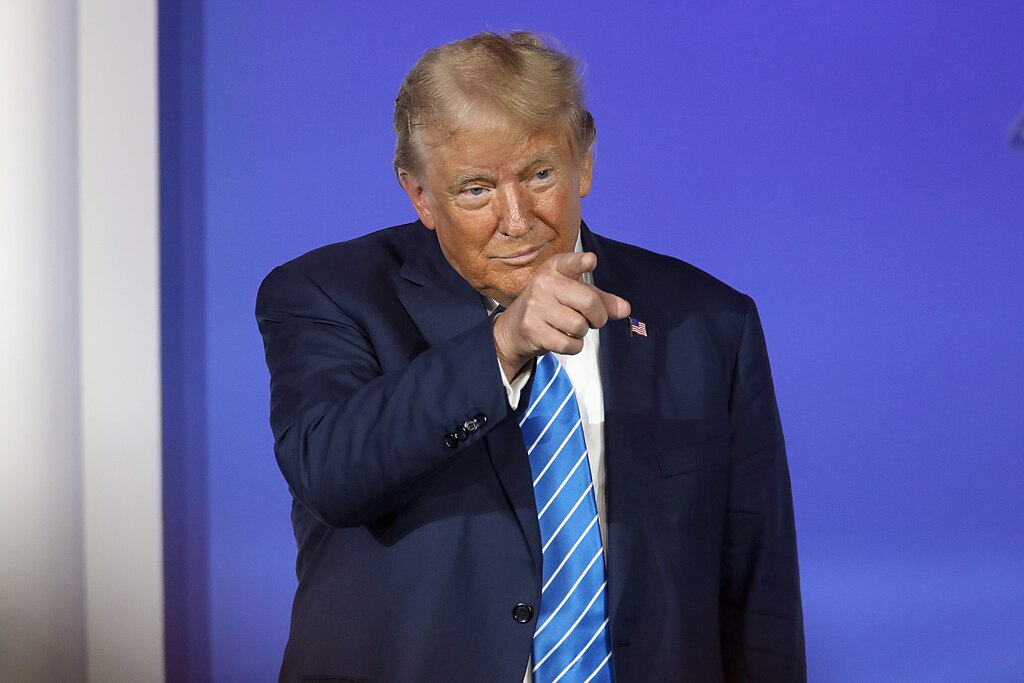As President Donald Trump embarks on his second term in 2025, his administration's approach to abortion laws has reignited intense national discourse. Trump's position, emphasizing state-level decision-making while supporting stringent federal measures, has polarized public opinion and prompted significant legal and social ramifications.
State-Level Autonomy with Federal Oversight
Throughout his political career, Trump has advocated for delegating abortion regulations to individual states. In April 2024, he reiterated this stance, stating that abortion should be a state matter.
However, his administration has simultaneously endorsed federal actions that could impose nationwide restrictions. Notably, the enforcement of the Comstock Act, a 19th-century law prohibiting the mailing of materials related to abortion, has been a focal point. This dual approach has led to a complex legal landscape, with states enacting varying degrees of abortion restrictions under the umbrella of federal oversight.
Cabinet Appointments Reflecting Anti-Abortion Agenda
Trump's selection of key cabinet members underscores his administration's commitment to anti-abortion policies. The appointment of individuals with strong anti-abortion records to pivotal positions has been a hallmark of his strategy. For instance, the nomination of Robert F. Kennedy Jr. as Secretary of Health and Human Services has raised concerns among reproductive rights advocates, given his previous statements on the issue.
These appointments are anticipated to influence the direction of federal health policies, particularly those related to reproductive health services.
Public Reaction and Social Media Discourse
The administration's abortion policies have elicited a spectrum of reactions from the public. Supporters argue that these measures protect the sanctity of life and uphold moral values. Conversely, critics contend that such policies infringe upon women's rights and bodily autonomy. The debate has been fervent on social media platforms. Twitter user @LifeDefender2025 expressed support, stating, "Finally, a president who stands for the unborn. #ProLife." In contrast, @ChoiceAdvocate tweeted, "Women's rights are human rights. This is a step backward. #MyBodyMyChoice."
Legal Challenges and Judicial Implications
The administration's stance has precipitated numerous legal challenges. Several states have enacted restrictive abortion laws, leading to a surge in court cases questioning their constitutionality. The Supreme Court, now with a conservative majority following Trump's judicial appointments, is poised to play a crucial role in determining the future of abortion rights in the United States. Legal experts anticipate that forthcoming rulings could either reinforce or dismantle existing precedents, significantly impacting access to abortion services nationwide.
Outlook
As the nation navigates the complexities of abortion legislation under the Trump administration, the interplay between federal directives and state laws remains a contentious issue. The administration's policies are likely to continue shaping the legal and social landscape, with profound implications for reproductive rights and healthcare access across the country.



 Israel Launches Fresh Strikes on Iran After Death of Supreme Leader Ayatollah Khamenei
Israel Launches Fresh Strikes on Iran After Death of Supreme Leader Ayatollah Khamenei  Trump Says U.S. Attacks on Iran Will Continue, Warns of More American Casualties
Trump Says U.S. Attacks on Iran Will Continue, Warns of More American Casualties  Failure of US-Iran talks was all-too predictable – but Trump could still have stuck with diplomacy over strikes
Failure of US-Iran talks was all-too predictable – but Trump could still have stuck with diplomacy over strikes  Israel Strikes Hezbollah Targets in Lebanon After Missile and Drone Attacks
Israel Strikes Hezbollah Targets in Lebanon After Missile and Drone Attacks  Middle East Conflict Escalates After Khamenei’s Death as U.S., Israel and Iran Exchange Strikes
Middle East Conflict Escalates After Khamenei’s Death as U.S., Israel and Iran Exchange Strikes  Australia Rules Out Military Involvement in Iran Conflict as Middle East Tensions Escalate
Australia Rules Out Military Involvement in Iran Conflict as Middle East Tensions Escalate  Marco Rubio to Brief Congress After U.S.-Israeli Strikes on Iran
Marco Rubio to Brief Congress After U.S.-Israeli Strikes on Iran  Pentagon Leaders Monitor U.S. Iran Operation from Mar-a-Lago
Pentagon Leaders Monitor U.S. Iran Operation from Mar-a-Lago  Israel Declares State of Emergency as Iran Launches Missile Attacks
Israel Declares State of Emergency as Iran Launches Missile Attacks  AI is already creeping into election campaigns. NZ’s rules aren’t ready
AI is already creeping into election campaigns. NZ’s rules aren’t ready  Russia Signals Openness to U.S. Security Guarantees for Ukraine at Geneva Peace Talks
Russia Signals Openness to U.S. Security Guarantees for Ukraine at Geneva Peace Talks  U.S.-Israel Strike on Iran Escalates Middle East Conflict, Trump Claims Khamenei Killed
U.S.-Israel Strike on Iran Escalates Middle East Conflict, Trump Claims Khamenei Killed  U.S. Deploys Tomahawks, B-2 Bombers, F-35 Jets and AI Tools in Operation Epic Fury Against Iran
U.S. Deploys Tomahawks, B-2 Bombers, F-35 Jets and AI Tools in Operation Epic Fury Against Iran  EU Urges Maximum Restraint in Iran Conflict Amid Fears of Regional Escalation and Oil Supply Disruption
EU Urges Maximum Restraint in Iran Conflict Amid Fears of Regional Escalation and Oil Supply Disruption  Macron Urges Emergency UN Security Council Meeting as US-Israel Strikes on Iran Escalate Middle East Tensions
Macron Urges Emergency UN Security Council Meeting as US-Israel Strikes on Iran Escalate Middle East Tensions  UK Accepts U.S. Request to Use British Bases for Defensive Strikes on Iranian Missiles
UK Accepts U.S. Request to Use British Bases for Defensive Strikes on Iranian Missiles  Trump Warns Iran as Gulf Conflict Disrupts Oil Markets and Global Trade
Trump Warns Iran as Gulf Conflict Disrupts Oil Markets and Global Trade 































